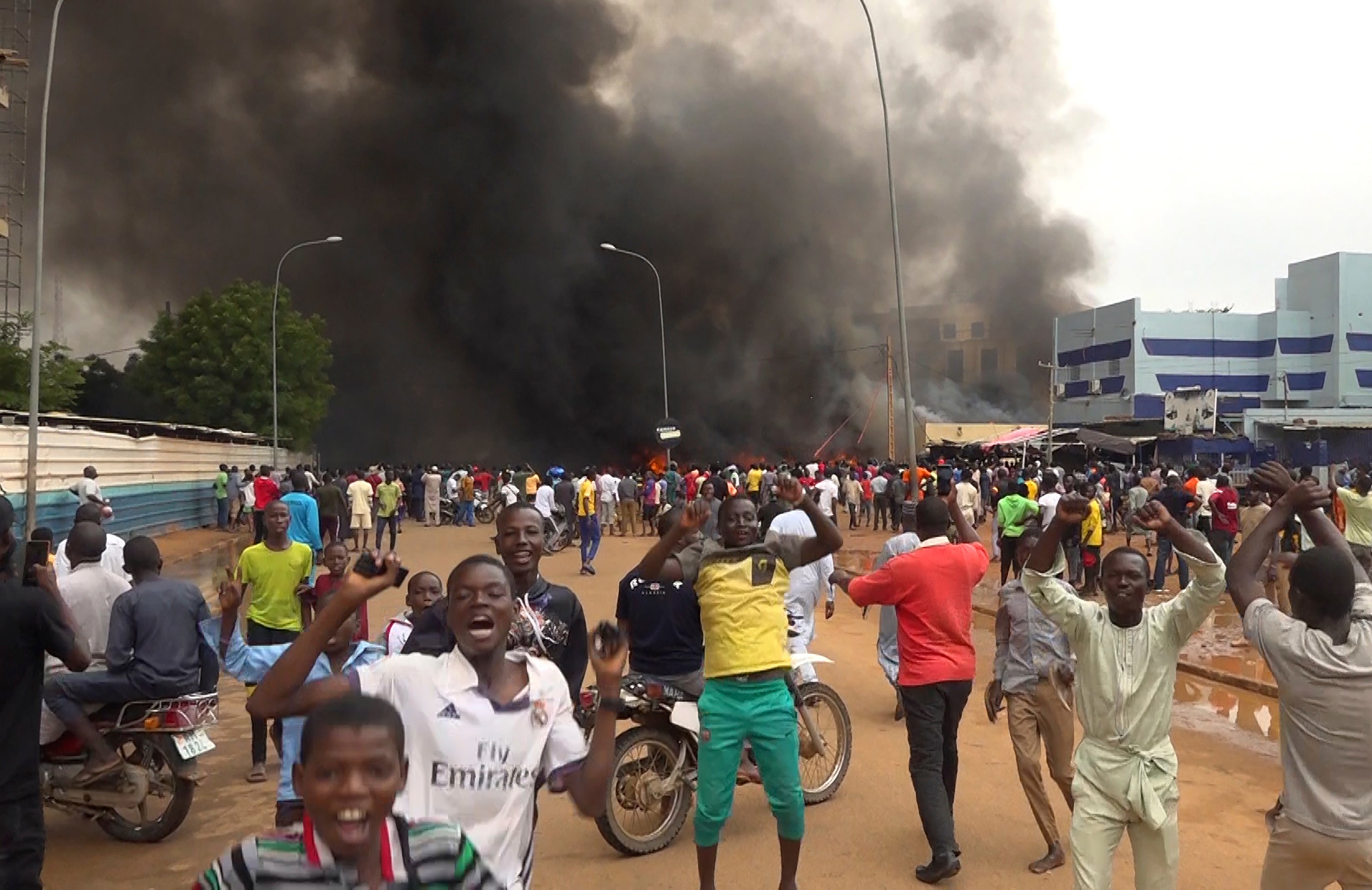French troops are starting to withdraw from Niger following the July coup as extremist attacks rise
The French military says it's begun withdrawing from Niger following the July coup when mutinous soldiers toppled the country’s democratically elected president

Your support helps us to tell the story
From reproductive rights to climate change to Big Tech, The Independent is on the ground when the story is developing. Whether it's investigating the financials of Elon Musk's pro-Trump PAC or producing our latest documentary, 'The A Word', which shines a light on the American women fighting for reproductive rights, we know how important it is to parse out the facts from the messaging.
At such a critical moment in US history, we need reporters on the ground. Your donation allows us to keep sending journalists to speak to both sides of the story.
The Independent is trusted by Americans across the entire political spectrum. And unlike many other quality news outlets, we choose not to lock Americans out of our reporting and analysis with paywalls. We believe quality journalism should be available to everyone, paid for by those who can afford it.
Your support makes all the difference.French troops have started leaving Niger more than two months after mutinous soldiers toppled the African country’s democratically elected president, the military said Wednesday.
The French didn’t specify how many troops were departing or where they were headed.
Late Tuesday, Niger’s state television broadcast images of a convoy leaving a base in Ouallam in the country’s north, saying it was bound for neighboring Chad, to the east. French military transport aircraft were also shown departing from an airbase in the capital, Niamey.
The departure comes weeks after French President Emmanuel Macron announced that France will end its military presence in Niger and pull its ambassador out of the country as a result of the coup that removed President Mohamed Bazoum in late July. Some 1,500 French troops have been operating in Niger, training its military and conducting joint operations.
Since seizing power, Niger’s military leaders have leveraged anti-French sentiment among the population against its former colonial ruler and said the withdrawal signals a new step towards its sovereignty.
The United States has formally declared that the ousting of Bazoum was a coup, suspending hundreds of millions of dollars in aid as well as military assistance and training.
Niger was seen by many in the West as the last country in Africa's Sahel region — the vast expanse south of the Sahara Desert — that could be partnered with to beat back a growing jihadi insurgency linked to al-Qaida and the Islamic State group. French troops have already been ousted by military regimes in neighboring Mali and Burkina Faso, which are seeing a surge in attacks.
Analysts warn that France's withdrawal will leave a security vacuum that extremists could exploit.
“French forces might not have defeated these groups, but at least disrupted and limited their activities, said said Rida Lyammouri, senior fellow at the Policy Center for the New South, a Moroccan-based think tank.
With the French out of the picture, these will likely "expand to areas where French forces were providing support to Nigerien forces, especially on the borders with Mali and Burkina Faso,” Lyammouri said.
Violence has already spiked since the coup. In the month after the junta seized power, violence primarily linked to the extremists soared by more than 40%, according to the Armed Conflict Location & Event Data Project.
Jihadi attacks targeting civilians quadrupled in August, compared with the month before, and attacks against security forces spiked in the Tillaberi region, killing at least 40 soldiers, the project reported.
___
Associated Press writer Angela Charlton in Paris contributed to his report.